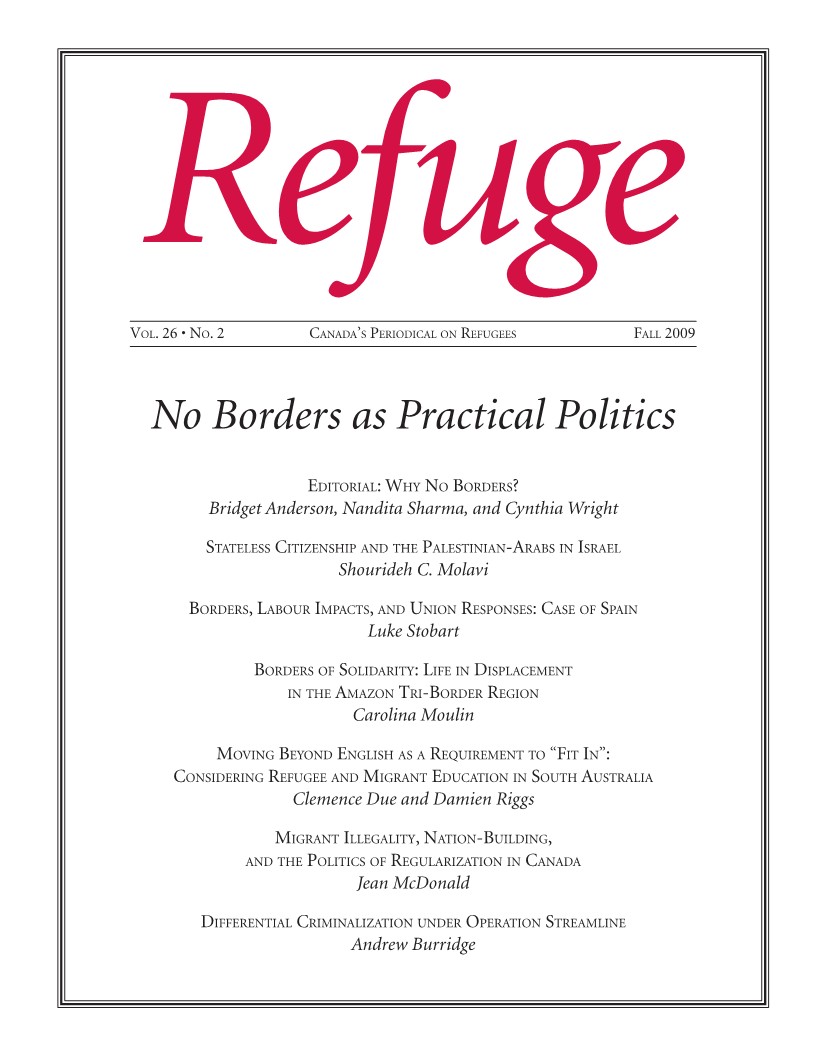Borders, Labour Impacts, and Union Responses: Case of Spain
DOI:
https://doi.org/10.25071/1920-7336.32076Keywords:
Spain, No Borders politics, migrant workers, border control, trade unions, labour conditionsAbstract
Spain is an acute example of severe yet permissive border control where institutional frameworks ensure that migrant labour inexpensively fills existing labour shortages and highly exploitative “niches,” while aiding a broader flexibilization strategy. Through a review of mainly Spanish research by trade union, industrial relations, and immigration specialists on three major migrant employment sectors, the article shows that impacts on employment and wage levels have been limited, despite claims to the contrary, although they have been deeper in those employment sectors with reduced legal protection and union organization. It concludes that while the Spanish case gives support to the No Borders position, it also exposes the need for greater engagement with migrant workers by the trade unions and rejects the major Spanish union federations’ recent advocacy of “controlled immigration.”
Metrics
Downloads
Published
How to Cite
Issue
Section
License
Copyright (c) 2011 Luke Stobart

This work is licensed under a Creative Commons Attribution-NonCommercial 4.0 International License.
Refuge authors retain the copyright over their work, and license it to the general public under the Creative Commons Attribution-Non Commercial License International (CC BY-NC 4.0). This license allows for non-commercial use, reproduction and adaption of the material in any medium or format, with proper attribution. For general information on Creative Commons licences, visit the Creative Commons site. For the CC BY-NC 4.0 license, review the human readable summary.







